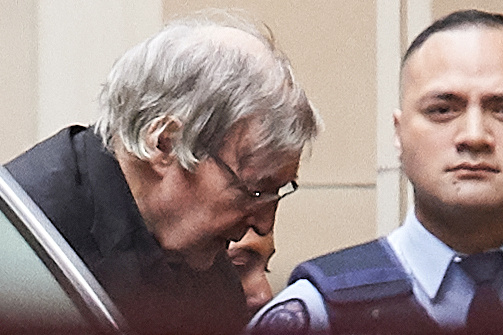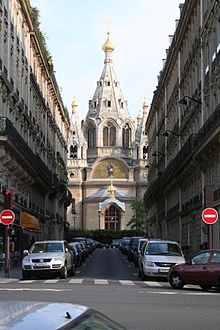The archbishop of the émigré Russian Orthodox in Western Europe, whose ancestors fled the 1917 Bolshevik Revolution and established a more democratic tradition in Paris, has decided to rejoin the Moscow Patriarchate and invited the 118 parishes under him to make the switch.
The surprise declaration by Archbishop Jean Renneteau, the 76-year-old Frenchman who leads the archdiocese covering most of Western Europe, came after a special general assembly here two weeks ago voted by 58.1 per cent to back the historic step but failed to reach the two-thirds majority needed for such a switch.
The archdiocese is small, based mostly in France, but highly symbolic because it shunned communist control and followed the reform policies of the 1917-1918 Moscow Council of the Russian Orthodox Church, which were never implemented in Russia itself.
For decades, the archdiocese was an autonomous exarchate of the Ecumenical Patriarchate in Istanbul, the spiritual leader of Christian Orthodoxy, but worshipped in the Russian tradition. Many followers are descendants of the original émigrés and no longer speak Russian, so services are often in French, English and other local languages.
Last November, after Moscow broke communion with Istanbul in protest over the latter's recognition of a new Kiev Patriarchate in Ukraine, the Ecumenical Patriarchate abolished the émigré archdiocese and advised its parishes to switch allegiance to the main local Orthodox ordinary.
That switch, meant to streamline structures in the diaspora, would put them mostly under a Greek Orthodox prelate. Archbishop Jean and his followers refused and began contemplating a return to the Moscow Patriarchate, which promised to keep the exarchate.
The archdiocese's fate is collateral damage from a schism between the Ecumenical Patriarchate, a “first among equals” with no power to intervene in other Orthodox churches, and the large, rich and Kremlin-supported Russian Church.
The Moscow Patriarchate has been expanding its influence in the Orthodox diaspora, an area where Istanbul believes it has the main authority, and attracting the émigré Russian archdiocese back to its fold is a feather in its cap.
Moscow hailed Archbishop Jean's decision within hours of its publication. Its leader, Patriarch Kirill, called it "a remarkable event" and said: “The tragedy of the (Soviet) revolution, the civil war and the division of our Church and our people has ended."
The archbishop's decision opened a Pandora's box of intra-Orthodox disputes and it was by no means clear how many parishes would now follow him or how many property disputes would break out.
The fate of his St. Alexander Nevsky Cathedral in Paris, built in 1861 with contributions from then Tsar Alexander II, tops the list of potential confrontations.
Archbishop Jean admitted his decision might not be popular in Britain and southern France. The Moscow Patriarchate won legal battles a decade ago to reclaim Russian cathedrals in London and Nice from the émigrés but lost its bid to recover their church in Biarritz.
It will also not be popular among critics who fear that joining the Moscow Patriarchate will eventually hollow out the archdiocese's autonomous character and integrate it into the Russian Church’s pro-Kremlin policies fostered by Russian President Vladimir Putin.
|
ReplyForward |



 Loading ...
Loading ...